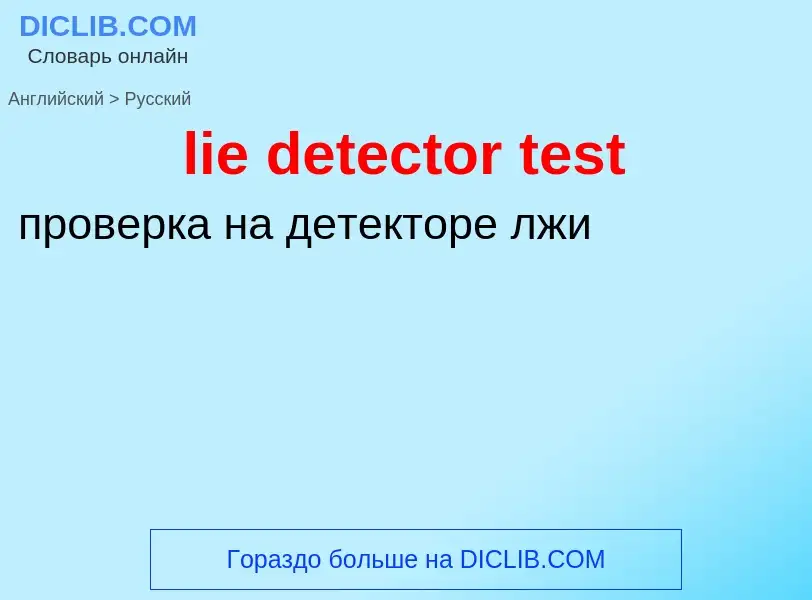Перевод и анализ слов искусственным интеллектом ChatGPT
На этой странице Вы можете получить подробный анализ слова или словосочетания, произведенный с помощью лучшей на сегодняшний день технологии искусственного интеллекта:
- как употребляется слово
- частота употребления
- используется оно чаще в устной или письменной речи
- варианты перевода слова
- примеры употребления (несколько фраз с переводом)
- этимология
lie detector test - перевод на русский
['laiditektə]
общая лексика
полиграф
детектор лжи (прибор для проверки правильности показаний допрашиваемого)
индикатор лжи
['pɔligrɑ:f]
общая лексика
проверка психофизиологическая
техника
полиграф
существительное
общая лексика
автор многих книг
плодовитый писатель
множительный аппарат
копия
экземпляр
детектор лжи
специальный термин
полиграф
многоканальный осциллограф (аппарат, регистрирующий реакции организма)
существительное
общая лексика
'детектор лжи' (прибор для проверки правильности показаний)
Определение
Википедия
Lie detection is an assessment of a verbal statement with the goal to reveal a possible intentional deceit. Lie detection may refer to a cognitive process of detecting deception by evaluating message content as well as non-verbal cues. It also may refer to questioning techniques used along with technology that record physiological functions to ascertain truth and falsehood in response. The latter is commonly used by law enforcement in the United States, but rarely in other countries because it is based on pseudoscience.
There are a wide variety of technologies available for this purpose. The most common and long used measure is the polygraph. A comprehensive 2003 review by the National Academy of Sciences of existing research concluded that there was "little basis for the expectation that a polygraph test could have extremely high accuracy.": 2, 212 There is no evidence to substantiate that non-verbal lie detection, such as by looking at body language, is an effective way to detect lies, even if it is widely used by law enforcement.



